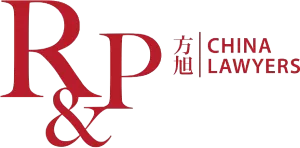- within Criminal Law topic(s)
- within Criminal Law, Employment and HR and Technology topic(s)
Effective 15 May 2022, new provisions set lower thresholds for criminal cases to be filed for commercial bribery, such as offering or accepting bribes not involving officials, embezzlement and misappropriation of funds. One of several recent initiatives to strengthen China's approach to dealing with commercial crimes, the new rules will make it easier and more likely for the criminal authorities to prosecute individuals and entities that engage in these crimes. This could also trigger businesses in China to review their internal compliance policies, to ensure that these align with the new thresholds.
Comparing provisions of these Provisions (II) on Standards for Filing and Prosecution of Criminal Cases under the Jurisdiction of Public Security Authorities (Filing and Prosecution Standards (II)) jointly issued by the Supreme People's Procuratorate and the Ministry of Public Security, with the previous thresholds:
| Crime | Previous standards (CNY) | New standards (CNY) |
| Accepting Bribes by Non-State Functionaries | By individual: 60,000 By entity: no crime |
By Individual: 30,000 By entity: no crime |
| Offering Bribes to Non-State Functionary | By individual: 60,000 By entity: 200,000 |
By individual: 30,000 By entity: 200,000 |
| Offering Bribes to Functionaries of Foreign Countries or Officials of Public International Organizations | By individual: 10,000 By entity: 200,000 |
By individual: 30,000 By entity: 200,000 |
| Embezzlement | By individual: 60,000 By entity: no crime |
By individual: 30,000 By entity: no crime |
| Misappropriation of Funds (e.g. of an entity) by individual | 100,000, if outstanding for more than three months, or if
profit-making activities 60,000, if funds are used for illegal activities |
50,000, if outstanding for more than three months or if for
profit-making activities 30,000, if funds are used for illegal activities |
Trends for Corporate Policies
The lowering of standards for criminal prosecution for providing and receiving bribes is a clear sign of encouragement to local authorities to pursue individuals and companies for these commercial crimes. Moreover, these amendments bring the prosecution standards for crimes involving non-state operators, in line with those for similar crimes involving state functionaries. The trend: the distinction that China has traditionally made between crimes involving the State and crimes involving only commercial operators, is becoming less relevant.
One question is how businesses should respond to these new trends. Generally, companies will establish their own standards for what is reasonable, for example on what value of gifts can be provided to customers to build relationships, what can be spent on inviting customers for dinner, and what kind of courtesies employees can accept from suppliers: the law does not set a clear basis on what should or should not be permitted for commercial operators. However, the law does set a clear limit for gifts and hospitality involving Chinese government officials and Communist Party members – which is only CNY 200. Whether this is a realistic amount for multinationals operating in China, remains to be seen. However, companies taking a conservative approach are expected to take recent trends into consideration when making adjustments to their corporate anti-corruption policies.
The content of this article is intended to provide a general guide to the subject matter. Specialist advice should be sought about your specific circumstances.
[View Source]


